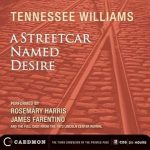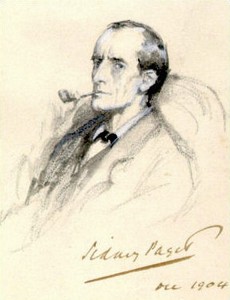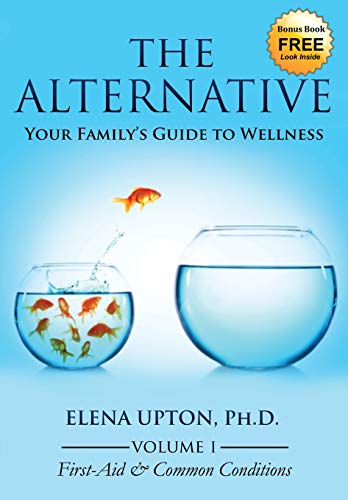 I’m familiar with the story — thank goodness! — but this audio book was so over produced, I couldn’t hear it. I got lots of background noise and ambiance, but the actual words were lost in the cacophony!
I’m familiar with the story — thank goodness! — but this audio book was so over produced, I couldn’t hear it. I got lots of background noise and ambiance, but the actual words were lost in the cacophony!
Author Archives: The Bookworm
First Lie Wins by Ashley Elston
 Finally! A female main character who is not an idiot! Well, unless you count getting stuck in this lifetime situation in the first place as stupid. None of the “I knew something wasn’t right . . .” or “That can’t be what I think it is . . .” and “I was so stupid!” when she goes ahead and makes a wrong turn anyway.
Finally! A female main character who is not an idiot! Well, unless you count getting stuck in this lifetime situation in the first place as stupid. None of the “I knew something wasn’t right . . .” or “That can’t be what I think it is . . .” and “I was so stupid!” when she goes ahead and makes a wrong turn anyway.
I did figure some of it out, but there were plenty of refreshingly surprising reveals.
Completely unbelievable, but a fun ride. Definitely six stars.
6/5
The Secret Doctrines of Jesus by H. Spencer Lewis
 Even though it’s a very short book, I’ve just not been able to continue with it, and I give up. I read The Mystical Life of Jesus and found it fascinating. The writing style was the same and, of course, a lot of secrecy about any sources. “They’re hidden and secret, but we have them.” Okay, fine. Whatever.
Even though it’s a very short book, I’ve just not been able to continue with it, and I give up. I read The Mystical Life of Jesus and found it fascinating. The writing style was the same and, of course, a lot of secrecy about any sources. “They’re hidden and secret, but we have them.” Okay, fine. Whatever.
But this book didn’t even do that. In this one, it was “we’ll get to that later” and never did.
Life’s too short and the TBR pile too tall!
1/5
Ten Year Reading Plan
This list is based on The Great Books of the Western World edited by Robert Hutchins and Mortimer Adler. There were two editions published (in 1954 and 1990) and this is an amalgamation of the reading plans from both of them.
Most of the links are to the Wikipedia articles for the authors and Project Gutenberg for the texts themselves. You should be aware that all Project Gutenberg offerings are in the public domain, which means they’re old! In most cases, it is what it is — these are old books. But in come cases there are much more recent and more readable translations of books that were not originally written in English. You may want to seek those out.
If you are looking for a group, there are many. Unfortunately, a lot of them aren’t active anymore.
The Great Conversation Reading Group started Year 1 in January 2025. Looks like this group is dead, too!
- Year One
Plato: Apology, Crito
Aristophanes: Clouds, Lysistrata
Plato: Republic [Book I–II]
Aristotle: Ethics [Book I]
Aristotle: Politics [Book I]
Plutarch: The Lives of the Noble Grecians and Romans [Lycurgus, Numa Pompilius, Lycurgus and Numa Compared, Alexander, Caesar]
New Testament: [The Gospel According to Saint Matthew, The Acts of theApostles]
St. Augustine: Confessions [Book I-VIII]
Machiavelli: The Prince
Rabelais: Gargantua and Pantagruel [Book I–II]
Montaigne: Essays [Of Custom, and That We Should Not Easily Change a Law Received; Of Pedantry; Of the Education of Children; That It Is Folly to Measure Truth and Error by Our Own Capacity; Of Cannibals; That the Relish of Good and Evil Depends in a Great Measure upon the Opinion We Have of Them; Upon Some Verses of Virgil]
Shakespeare: Hamlet
Locke: Concerning Civil Government [Second Essay]
Rousseau: The Social Contract [Book I–II]
Gibbon: The Decline and Fall of the Roman Empire [Ch. 15–16]
The Declaration of Independence, The Constitution of the United States, The Federalist [Numbers 1-10, 15, 31, 47, 51, 68-71]
Smith: The Wealth of Nations [Introduction—Book I, Ch. 9]
Marx–Engels: Manifesto of the Communist Party
Tocqueville: Democracy in America [Vol 1, part II ch 6-8]
Ibsen: The Master Builder
Schrodinger: What is Life?
The Brain-Attic
 “I consider that a man’s brain originally is like a little empty attic, and you have to stock it with such furniture as you choose. A food takes in all the lumber of every sort that he comes across, so that the knowledge which might be useful to him gets crowded out, or at best is jumbled up with a lot of other things, so that he has a difficulty in laying his hands upon it. Now the skilful [sic] workman is very careful indeed as to what he takes into his brain-attic. He will have nothing but the tools which may help him in doing his work, but of these he has a huge assortment, and all in the most perfect order. It is a mistake to think that that little room has elastic walls and can distend to any extent. Depend upon it there comes a time when for every addition of knowledge you forget something that you knew before. It is of the highest importance, therefore, not to have useless facts elbowing out the useful ones.” ~ Sherlock Holmes, A Study in Scarlet.
“I consider that a man’s brain originally is like a little empty attic, and you have to stock it with such furniture as you choose. A food takes in all the lumber of every sort that he comes across, so that the knowledge which might be useful to him gets crowded out, or at best is jumbled up with a lot of other things, so that he has a difficulty in laying his hands upon it. Now the skilful [sic] workman is very careful indeed as to what he takes into his brain-attic. He will have nothing but the tools which may help him in doing his work, but of these he has a huge assortment, and all in the most perfect order. It is a mistake to think that that little room has elastic walls and can distend to any extent. Depend upon it there comes a time when for every addition of knowledge you forget something that you knew before. It is of the highest importance, therefore, not to have useless facts elbowing out the useful ones.” ~ Sherlock Holmes, A Study in Scarlet.
The Alternative: Your Family’s Guide to Wellness by Elena Upton, Ph.D.
This review was written for LibraryThing’s Early Reviewers. I received a copy of this book from the publisher to review.
“The Alternative: Your Family’s Guide to Wellness” by Elena Upton
Fifth Element Press (2019) 2nd Edition
3.5 / 5
“The Alternative: Your Family’s Guide to Wellness” is a book by Elena Upton, Ph.D., a classically trained Homeopath. It contains the usual disclaimers for health-related books. The type-face that’s been used seems particularly small and at times was difficult to read, but there is plenty of white-space, so that does help.
The first few chapters of the book focus on the history and implementation of natural medicine and some of its different disciplines. Of particular interest is “How Did We Get Here?” which deals with the 1908 report by Abraham Flexner, commissioned by the Carnegie Foundation to study medical schools in the United States. It’s alleged that, within a few years of its publication, the recommendations of the report were responsible for the demise of not only most of the medical schools in the U.S. (those that weren’t affiliated with a University), but also most of the alternative medicine options. Also mentioned is the “Health Maintenance Organization Act of 1973” which made health care in this country a for-profit enterprise.
While the book centers on homeopathy, there is some introductory information about Chinese medicine and acupuncture, naturopathy, and chiropractic and osteopathic processes. Most of the book is dedicated to setting forth the causes and symptoms of common maladies and injuries and the homeopathic remedies for them, but some of the entries include other types of treatment possibilities.
This is a great book for Inquiring Minds that Want to Know more about natural medicine, why it isn’t currently at the forefront of medical care in the U.S. like it is in the rest of the world, and some examples of how to implement it. But this book will also work for someone who already has an interest in homeopathy or other healing arts. There are actual remedy dosages listed in this book. I’ve read a lot of herbals and other books of natural and alternative medicine, and it’s refreshing to find this information actually put forth. It has to do with the nature of homeopathic remedies themselves — there’s pretty much no way you can hurt yourself with them and that’s the crux of the controversy.
I don’t know that homeopathy will every be my go-to medical route, but there’s a lot of information in this book that’s still useful and relatable. I’m very happy to have this book in my library.
Make It Right by Ron Yates
 This review was written for LibraryThing’s Early Reviewers. I received a copy of this book from the author to review.
This review was written for LibraryThing’s Early Reviewers. I received a copy of this book from the author to review.
“Good fiction presents plausible problems. Chekhov maintained that the artist is not required to solve the problem but to correctly formulate it. I feel cheated when an author provides a tidy package without allowing me to participate in wrapping it up. I’d hate to deny my readers the opportunity of struggling with the problems I’ve formulated. In grappling with them, the reader will decide if they’ve been correctly formulated.”
When I saw these words in the preface, my heart sank. I don’t want to grapple with problems. I do that all day. When I settle in to read I want all the hard work done for me. I guess I want to be cheated with tidy packages. It’s also been my experience that when an author or screenwriter makes these claims, it usually feels like they were just lazy and couldn’t figure out how to finish the book or movie they were working on. I’m very relieved this wasn’t true of Ron Yates and these offerings.
I really enjoyed these stories and didn’t feel I was left hanging after finishing any of them. That’s not to say it was all over as soon as the last page was turned. I still find images and thoughts of most of these stories popping into my head at odd times, especially “I Sank the Mandolin.”
I love the way Ron Yates writes — direct and to the point — and his style was quite refreshing. There isn’t a word in these stories that doesn’t belong and make sense; no verbose scene-setting to skim through. But you still get that feeling of, say, exploring the old abandoned barn. And you still know enough about the characters to actually care about what happens to them, or to realize you have people in your own life who are just like that.
This is a short book and a quick, thought-provoking read.
It’s Alive! It’s Alive!
What a great week! First, I heard from Professor Grote. And today, Jim Tirey, the brains behind Textkit!!
You always hope when you find that things have not changed for the better that there’s a happy reason. What a relief to know that’s true in this case. Not only that, but Jim was able to find the time to update the site and it looks great!
Yay!
An Incomplete Education by Judy Jones and William Wilson

I wish I could remember where I picked this up. Might have been Hastings, but I get rid of their stickers as soon as possible because they put them in the most inconvenient places.
Anyway, I haven’t finished the book yet, but I probably never will. It will be a nightstand/end table fixture from now on.
This is the kind of book you just pick up on occasion and read random bits and pieces here and there. It really is packed with information and the writing style is mostly fun. I really enjoy the authors’ take on subjects I’m familiar with, but unfortunately that’s not too helpful if you’re trying to get a good grasp on things that continue to elude you. I took Economics in college three times and dropped out every time. It didn’t make sense then, and even after reading that section in this book several times, it doesn’t make sense now. But if you’ve a mind to explore in more detail, there are great clues here.
I like this book and would recommend it. In most cases, it makes light, easy reading of some interesting subjects.

